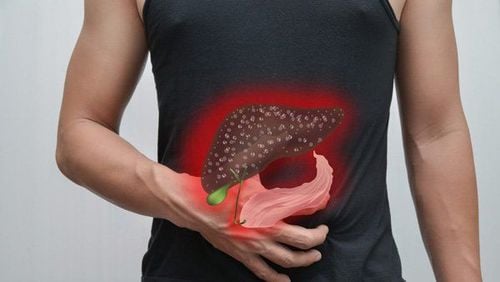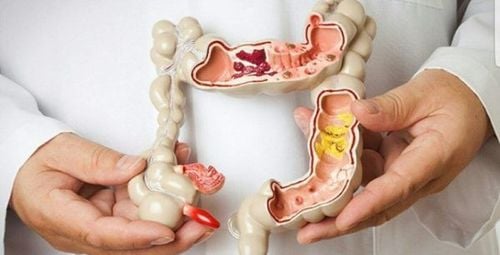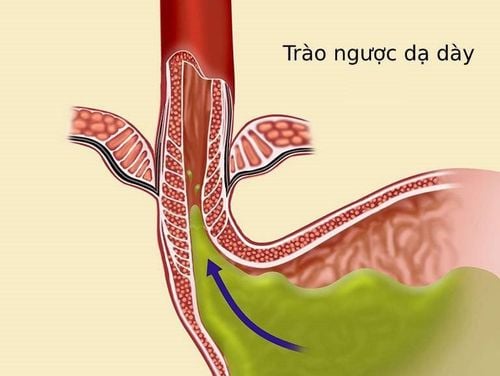Esophageal cancer is a malignant disease with a high risk of death because it is often diagnosed at later stages. However, if detected early, the 5-year survival rate is greatly improved. If you wonder how long a patient with esophageal cancer can live, please read the information below.
1. Overview of esophageal cancer
The esophagus is a part of the digestive tract located just behind the trachea, responsible for carrying food and liquids from the oropharynx to the stomach. The esophagus of an adult is usually about 25 cm long.
Esophageal cancer is a condition in which cells in the esophagus lumen grow abnormally, penetrating deeper into the layers of the esophagus wall. As the esophagus has no serosa, the tumor quickly invades through the esophagus to neighboring organs.
Esophageal cancer includes several types including squamous cell carcinoma, adenocarcinoma, and others.
- Squamous Carcinoma (account for 95%): Cancer that forms in epithelial cells in the wall of the esophagus, usually occurring in the upper 1/3 or in the middle 1/3 of the esophagus. This type is usually sensitive to radiation and chemotherapy.
- Adenocarcinoma (account for 2.5-5%): Cells and tumors usually arise from glandular tissue in the lower part of the esophagus. If these tumors are not treated early, they can invade other parts of the body such as the liver, lungs or bones,... quickly. This type is less sensitive to radiation and chemotherapy.
- Other types (account for less than 1%) include small cell, lymphoma, and sarcoma cancers.
There are 4 stages of esophageal cancer, with different prognosis:
- Esophageal cancer stage 1: Cancer cells are located in the top layer of the esophagus wall.
- Esophageal cancer stage 2: When esophageal cancer cells have invaded nearby lymphatics, but have not yet affected other parts. This phase is divided into two sub-phases.
- Esophageal cancer stage 3: Cancer cells invade in the paraesophageal and lymphatic regions, affecting the deeper layer of the esophageal wall.
- Esophageal cancer stage 4: This is a terminal cancer, the cancer cells have invaded other parts of the body such as the liver, lungs, brain, bones.
2. How long can a patient with esophageal cancer live?
The prognosis of esophageal cancer is often very bad, because it is often diagnosed at later stages, so it is very difficult to treat esophageal cancer. Life expectancy of esophageal cancer patients depend on many different factors, including:
- The stage of cancer detection: Early stages have a better prognosis because surgery is completely possible, depending on which part of the esophagus with cancer to select an appropriate surgical method. For cases of advanced or metastatic esophageal cancer, treatment only helps to reduce symptoms, prolong survival and the survival rate over 5 years is very small.
- Underlying diseases of the patient: If the patient is in good health, with little or no other underlying disease, the prognosis is also better.
- Proper nutrition.
The 5-year survival rate of esophageal cancer by stage of the disease:
- Stage I: In this stage, the main treatment is surgery for esophageal cancer. The 5-year survival rate after surgery for esophageal cancer is about 80%.
- Stage IIA: The 5-year survival is from 50 to 80%.
- Stage IIB: The 5-year survival rate is 10 - 30%.
- Stage III: The 5-year survival rate is 10-15%.
- Stage IV: The metastatic/final stage has a very poor prognosis, with only < 5% surviving for more than 5 years. Some people with advanced esophageal cancer can even die within a few weeks of being diagnosed, or may only live for a few more months. The average survival time of people with end-stage esophageal cancer is only about 4 to 6 months, it is difficult to extend to 5 years.
Thus, there is no exact survival time for each person with esophageal cancer because their life expectancy depends on many different factors.
3. How to care for people with esophageal cancer?
The esophagus is the passage that carries food from the mouth to the stomach, esophageal cancer can cause the passage of food to be blocked. Patients are not nourished enough, so not only caring for their survival rate, you also need to pay attention to the patient's diet. This helps the patient's body to be provided with enough nutrition, so they can fight the disease better and have their quality of life improved.Some notes on nutrition and supportive care for patients include:
- Nutrient-rich, soft, thin, or pureed foods should be provided in small, frequent meals throughout the day.
- If necessary, the doctor will prescribe parenteral nutrition with supplemental fluids.
- If the patient cannot eat by mouth, it is best to administer pureed food through a percutaneous endoscopic gastrostomy (PEG) tube.
- The patient is also prescribed to use mucosal dressings like alginates and antacids (namely: Gaviscon), secretion inhibitors like Proton pump inhibitors (PPIs, namely esomeprazole, pantoprazole, etc) to avoid the risk of esophagitis.
- If the patient is in a lot of pain, painkillers may be required to control the pain. They help increase the quality of life for patients, especially those with terminal illness.
In summary, the prognosis of esophageal cancer is often poor because the disease is often detected late. Therefore, in order to increase the chances of survival over 5 years of people with esophageal cancer, you should do the screening for cancer early, if detected early, the survival rate is much higher.
Please dial HOTLINE for more information or register for an appointment HERE. Download MyVinmec app to make appointments faster and to manage your bookings easily.













